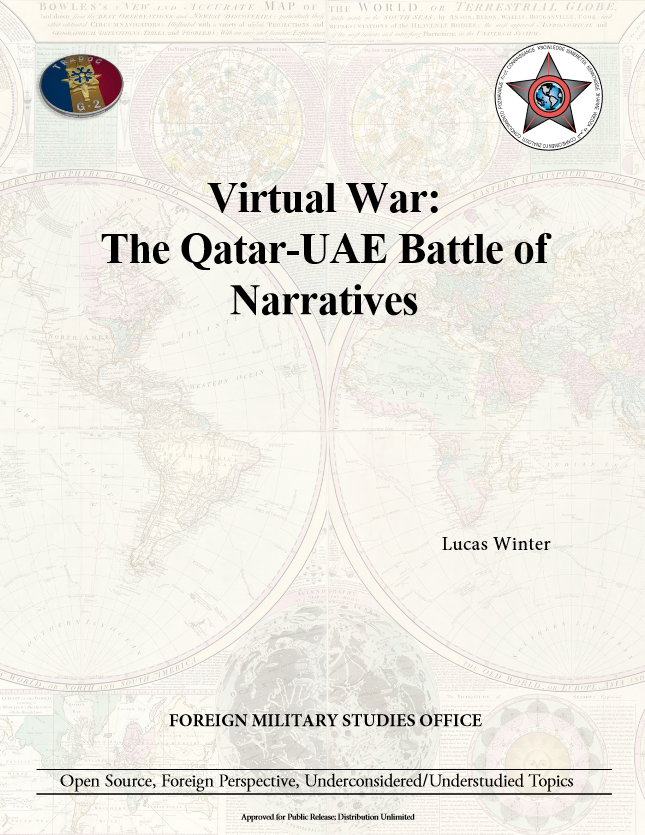(Click image to download brief.)
Over the past decade, strategic competition between Qatar and the UAE has evolved into low-level information warfare. What began as disagreements on foreign policy in the wake of the Arab Spring has escalated into a conflict to shape and control information flows in cyberspace. Although not always visible, Qatari-Emirati competition has become a persistent feature of the regional Operational Environment (OE). Their competition in the cyber-information sphere is part of a broader competition for influence involving Turkey, Qatar and their allies, on the one hand, and Saudi Arabia, Egypt, the UAE and their allies, on the other.1 One of Qatar’s main contributions to the Turkish-led axis is the employment of Arabic-language media outlets to influence local and foreign perceptions of the OE. The adversarial Qatar-UAE relationship has more recently morphed into a nascent cyber conflict to control not only the narrative but also digital data and information. Hoping to become hubs of the new digital economy, both countries are investing in cybersecurity and artificial intelligence (AI) technologies in ways that will enhance their capabilities to shaper perceptions of the OE.2 Their conflict will continue to be a dynamic factor shaping the regional OE, and its evolution highlights the changing character of information war.

